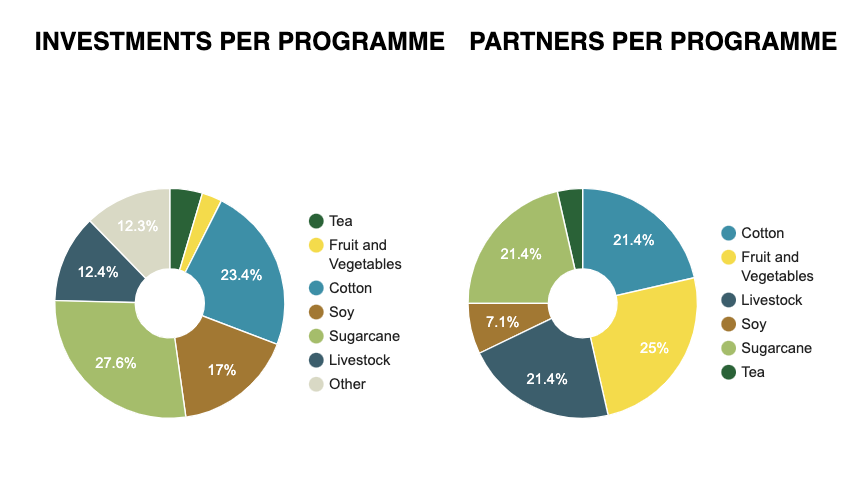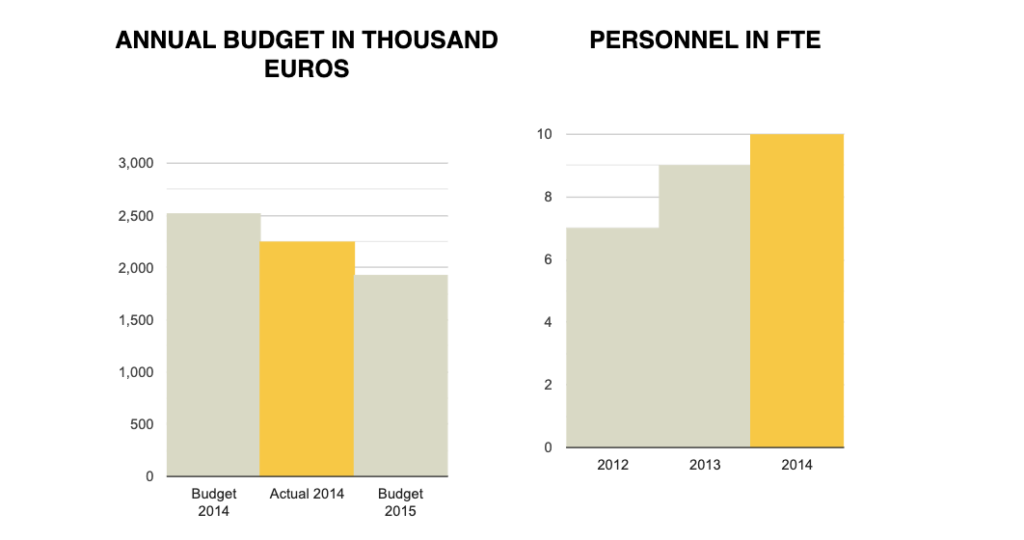REGIONAL COMMODITY PROGRAMMES
Solidaridad Southern Africa has been actively supporting initiatives that promote sustainability and increase cotton production in Mozambique and Zambia. On the demand side, the decision of Woolworths (a key retail brand in South Africa) to become a member of the Better Cotton Initiative (BCI) will help to strengthen sustainable supply chains in cotton in Africa.

The RTRS (Round Table for Responsible Soy) standard is new to Africa. Solidaridad is involved in promoting RTRS methods through two projects in Mozambique and Malawi. As a result farmers in Mozambique have seen a substantial increase in yields, while in Malawi approximately 38,000 farmers have received certified soybean seed.

Southern Africa produces 75% of the continent’s sugarcane both by large and small-scale producers. Solidaridad Southern Africa’s efforts in 2014 focused on Malawi and Swaziland, with more than 1700 farmers adopting our sugarcane production principles. New projects will start in 2015.

Two major concerns with traditional livestock farming are overgrazing and poor commercialization. Key to the successful implementation of Solidaridad’s two livestock projects in Southern Africa has been securing the support of traditional leadership structures to address these issues.

Horticulture is a new product category for Solidaridad Southern Africa. The first project was implemented in 2014 and two more have been approved for 2015. All three projects have the common goal of improving access to formal markets.

EXTERNAL DEVELOPMENTS
In 2014, Africa experienced continued economic growth, with Mozambique, Malawi and Zambia all recording between 6% and 7% increases in GDP and South Africa around 4%. This growth is mostly felt in urban areas, while people in rural areas, where there is little economic development, remain poor. One result of the growing economy and higher levels of food consumption is that most countries are increasing food imports. The challenge — and the opportunity — is to foster local and regional food production while reducing dependency on imports.
A positive development among businesses in Southern Africa is that sustainability has moved up the corporate agenda. There is a fast-growing drive towards sourcing sustainably produced agricultural products and supporting regional and national producers.
In South Africa, the move towards a more inclusive economy got a new impulse in 2014 through the development of a new Broad-Based Black Economic Empowerment scorecard. There is now a greater focus on businesses supporting new black entrepreneurs and sourcing from those new black businesses. Solidaridad Southern Africa — together with its partners– is looking for opportunities to support this development.

RESULTS AND PARTNERSHIPS
In 2014, Solidaridad Southern Africa implemented and developed projects in the cotton, soy, sugarcane, beef and horticultural sectors. A large cotton and food security project was started in Zambia and Mozambique, with well-established partners such as the Zambian Cotton Association and Olam.
Also in Mozambique, we work with Technoserve on improving the production of soy among 25,000 smallholders, using Round Table for Responsible Soy (RTRS) standards as our starting point. This project has resulted in some farmers doubling their production.
In Namibia and South Africa, two successful livestock projects are being implemented. The main challenge is to work with local communities in implementing land use planning and grazing schedules to combat overgrazing. These projects have improved conditions in the fields, resulting in healthier, better fed animals. The next step is to ensure that farmers can actually increase their income by improving market access and cutting out middlemen.
In sugarcane, we are working on introducing Susfarms, a South African sustainable sugarcane farming management system. Key partners in this programme include SABMiller, WWF, the South African Sugar Association and Illovo. In addition, we have promoted the introduction of Bonsucro principles in Swaziland and Malawi.

DONORS AND ORGANIZATIONS
Key donors are the Solidaridad Farmer’s Support Programme (FSP) and the Netherlands Enterprise Agency (RVO). In 2014, a new horticultural project started with Sustainability Initiative of South Africa (SIZA), which is funded by the Netherlands Embassy in Pretoria. We also sourced local funding for two smaller projects in mango achar production (pickled mangos) for a small cooperative that is owned and ran by women in Limpopo, and a vegetable project just outside of Johannesburg.
Solidaridad Southern Africa, which is located in Johannesburg, employed nine staff members in 2014 and this number grew to 12 at the start of 2015. There is a Mozambique office and the first representative for Zambia was appointed in 2014 as well as a representative in Cape Town.
